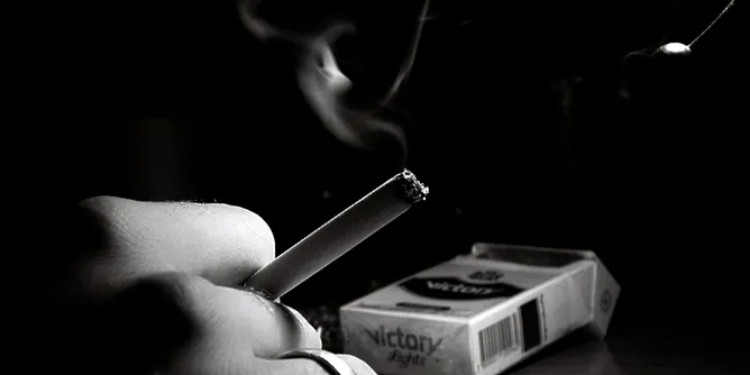Background of the period in which the book was written:
In the crisis of certainty, the classic is questioned in all its aspects. In this period, the centrality of the human and the absolute truth is not believed. Positivism loses its importance. More points of view takes places of these values. In philosophy, the dominant values of the period (Positivism, Christianity) are criticized by names such as Schopenhauer and Nietzsche. With Freud and psychoanalysis, people realize that they don't really have much information about their character. The movement “Realism” is criticized in Italy in the literary field with Pirandello and Svevo. In the field of art, the movement of this period is Cubism. Theories about the future of the universe emerge in astronomy. In physics, Einstein's theory of relativity takes the stage. Personally, I believe that this period is very important because it forces people to question everything and express themselves in new ways.
Sigmund Freud, Psychoanalysis and Zeno's Conscience:
Psychoanalysis is a therapeutic method of researching unconscious mental processes. To understand the book "Zeno's Conscience" we must know the concepts used by Freud in psychoanalysis such as consciousness, preconscious, unconscious (the topographic model), ego, es, super-ego (the structural model). Consciousness is the tip of the iceberg, the part we are aware of when we are awake. The preconscious includes life and knowledge that can be brought into consciousness with little effort or concentration of attention. Unconscious contains hidden desires, fears and traumas of the past. The ego is the personal side of the human mind. The id acts according to the pleasure. It is selfish and wants to be satisfied instantly. The super-ego appears at the age of four. It has the duty of "conscience" and "guardian of morality" which prevents us from behaving badly. Now let us examine the book according to Freud's psychoanalytic theory. The main character of the book Zeno Cosini, is a hypochondriac, masochist and neurotic. Zeno is a person who has already accepted defeat, has condemned himself to unhappiness and always sees the negative aspects of life. One day he decides to free himself from smoking addiction and goes to the doctor. Doctor S. tells Zeno to start practicing psychoanalysis as a method of treatment and asks him to write down the important parts of his life. The aim here is to discover Zeno's subconscious. According to Freud a person must love something in order not to be sick. As we read in the book, Zeno really didn't like anyone. In this case, characteristics like not loving anyone, being alone and only thinking about yourself; in short, falling in love with oneself is seen as "narcissism" in psychoanalysis. The fact that his relationship with his father is not good and he feels remorse after his father's death and that he always has problems in his relationships shows us that Zeno will have a hard time loving someone all his life. In this case his narcissism is also associated with hypochondria according to Freud. Another thing we see in the character is the sense of guilt. The reason Zeno starts blaming himself after his father's death is because he doesn't have better relationships with him. According to Freud, guilt arises from the conflict between ego and super-ego. The most important thing we see is that he doesn’t work and take responsibility. The most important thing we see in Zeno is the Oedipus Complex. According to the Oedipus Complex, the boy goes through some unconscious phases. He longs for his mother, realizes the strong bond between his parents, hates his father, fears his father for understanding his true feelings and is ultimately afraid of being punished. Zeno lost his mother when he was little. For this reason, the relationship between the baby and the mother was not fully completed. Zeno thinks he is in love with Ada. He thinks about regulating his life and achieving the desired state with her, but at the same time he begins to see her as his second mother, he seeks her mother and wants to find her characteristics. He remembers his mother in all details. After Ada's rejection, she marries her sister Augusta and we see that she doesn't have the ability to decide. Although he marries Augusta instead of Ada, he seeks out his mother the same way. After marrying Augusta, Zeno cheats on her with Carla. The reason is that he wants to show his masculinity according to Freud. According to Freud, when the identity forces the ego a lot, the person develops some mechanisms to protect himself, these are defense mechanisms. In this book, Zeno uses defense mechanisms such as repression and finding an excuse. At first Zeno does not want to marry Augusta, so he is late for the wedding. Zeno goes to another cemetery for Guido's funeral and does not accept that he has confused his place, tries to hide his mistake with the help of the ego and finds an excuse with the defense mechanism so as not to blame himself or not be blamed by others. To explain Zeno's addiction to smoking, we can say that he had a desire to replace his smoking father. Apart from this, according to Freud's theory of psychosexual development, in the oral period (between 0-1.5 years) the wishes of children are in the mouth area, the object taken in the mouth due to breastfeeding creates a sense of happiness. If these feelings are outdated or insufficient, smoking addiction may appear in the future. If this was not done correctly by his mother, we can link smoking addiction to it. In this book we can also see some failed acts, an error in physical action caused by the interference of an unconscious desire. For example, he cannot break free from his addiction to smoking because in reality Zeno has no intention of quitting smoking or he goes to the wrong cemetery because he really doesn't want to go. Even though he wants to quit smoking, he never has. The cigarette has become an alibi of which he is responsible for his inability, in this way we can see his weakness.









Yorum Bırakın